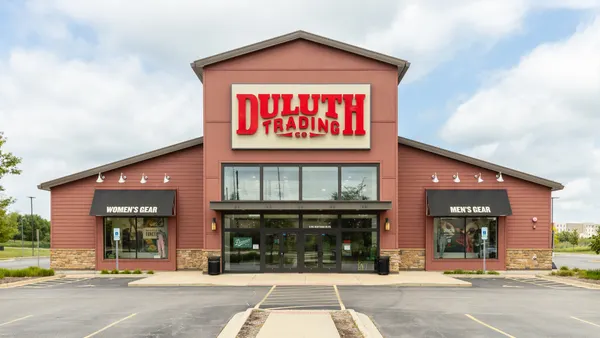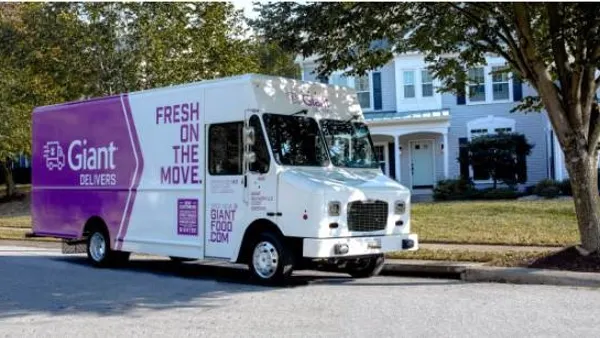Dive Brief:
- Amazon is considering a 50,000-square-meter warehouse for lease just outside Sao Paulo, Brazil, as it looks to expand its presence in the South American nation, Reuters reported.
- Although Amazon already sells books from an established website, the company may also begin handling its own distribution of electronics and other items. However, complex tax laws and chaotic logistics have thus far impeded real e-commerce success in Brazil.
- Current e-commerce sales account for 5% of Brazil’s approximately $300 billion retail market — half the U.S. rate — but the numbers are doubling rapidly. Predictions put future growth in the double digits.
Dive Insight:
While we often think of China as one of the biggest emerging markets, Amazon's expansion into Brazil shows it sees high e-commerce potential in Latin America.
"Brazil is a huge market for this," Charles Kane, senior lecturer at MIT Sloan School of Management, told Supply Chain Dive. He said the nation has a dense and rather wealthy population, along with a high GDP.
Amazon's Brazil warehouse would serve as a launching pad for the region, allowing the e-commerce company to expand into other key hubs in Latin America.
"Latin American buying behavior is not too dissimilar from the U.S.," Kane said, which means Amazon has the potential to be just as successful in the southern hemisphere as it's been in the north. "It would be foolhardy for a company that's going global to ignore Brazil."
Amazon already sells goods in Brazil, but it relies on local third parties to ship the products to consumers. Many reviews of the Amazon's Brazilian marketplace are negative, however, with complaints centered on delayed or canceled orders. If Amazon is able to improve delivery statistics, Brazilians may start to rely even more on e-commerce.
The logistics of transporting goods won't come without some hiccups.
"They haven't figured out the tax structure yet," Kane said. In the U.S., "we get our things tax free on the internet. Some countries aren't going to concede that."
If the Brazilian warehouse proves successful for Amazon, it will likely set a precedent for other retailers as they look to compete with the company. But with Amazon's proactive business model, it will already have a foothold in Brazil and be expanding throughout Latin America, while most retailers are just starting to dip their toes into Brazilian markets.













